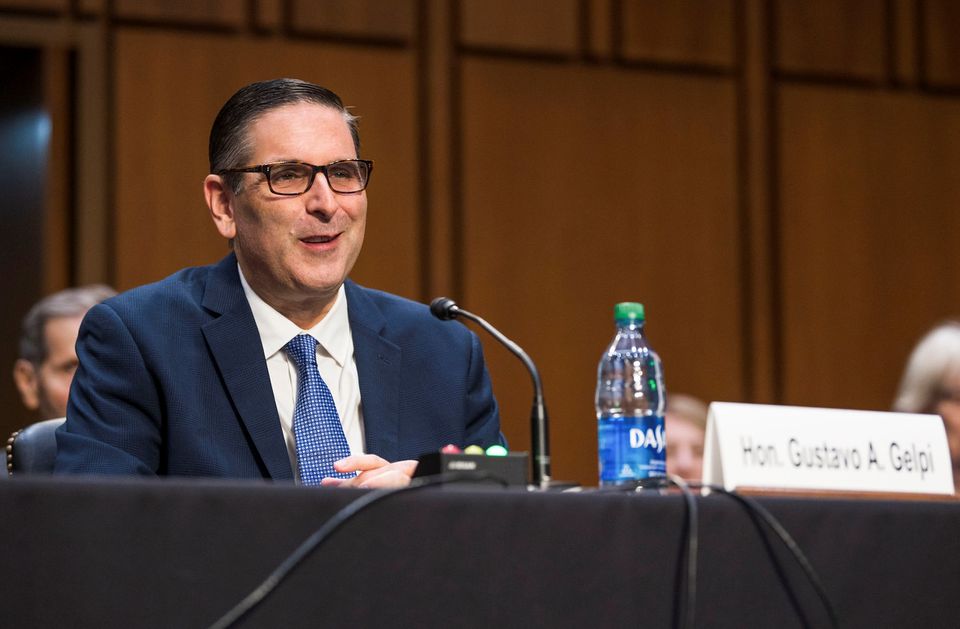Douglas Blackmon has a simple message for all Americans: Tell the truth.
As a reporter for the Wall Street Journal in 2000, Blackmon discovered a particularly unpleasant truth: For more than 70 years following the Civil War, large numbers of African Americans were arrested on trumped-up charges and leased as convict labor to coal mining operations, farms and other industries across the South. Many were literally worked to death in what Blackmon terms a neoslavery system.
The book in which Blackmon details this practice, Slavery by Another Name: The Re-Enslavement of Black Americans from the Civil War to World War II, won a 2009 Pulitzer Prize. Blackmon discussed the ugly history his book reveals and its implications for future race relations at Vanderbilt Law School on January 19 when he delivered the 2010 Martin Luther King Jr. Lecture, "A Persistent Past: Reckoning with Race and History in the Age of Obama."
In Slavery by Another Name, Blackmon not only follows the story of Green Cottenham, a 23-year-old man arrested and convicted of a trumped-up charge of vagrancy in Shelby Country, Alabama, in 1908, but also shines a light on a little known, but well-established and pervasive system in which local lawmakers colluded with businesses and industries to provide them with a steady source of cheap labor. “Under a standing arrangement between the country and a vast subsidiary of the…U.S. Steel Corporation, the sheriff turned [Cottenham] over to the company for the duration of his sentence. In return, the subsidiary, Tennessee Coal, Iron & Railroad Company, gave the county $12 a month,” he writes. Cottenham would be dead in less than a year, literally worked to death in a Birmingham mine called Slope No. 12.
Blackmon traces his interest in the history of race relations to his childhood in Leland, Mississippi, where 1970 – the year he started elementary school – was the first year many schools in the rural South were integrated. As a white boy attending public school, Blackmon was in the minority. “Even as a child, I as conscious that something was terribly wrong,” Blackmon recalled. “All the black kids at school were mad at me for reasons I didn’t understand. The white kids fled public school; they were all mad at me for reasons that seemed a little clearer. I was living in this world in which everybody seemed to be mad at everyone, and I was very affected by that. I began to ask questions about why things were the way they were. The differences between the lives of white and blacks [in Leland] were astonishingly different. Almost every black family lived in a state of poverty that was unimaginable to me.”
Although the 2008 election of Barack Obama the country’s first black president was “an event Dr. King would have agreed was the mountaintop,” Blackmon contends that most Americans have yet to honestly explore the history of race relations, “not just as black history or a history of bad things that white people did, but as American history, things done by Americans to other Americans.” As a result, few Americans understand or acknowledge the impact of slavery before the civil war, and many are not even aware of the system of neoslavery that quickly became institutionalized across the South after the war. “That’s not the version of history most of us have absorbed,” he said.
However, while researching Slavery by Another Name, Blackmon discovered “tens of thousands of original records…of the capture and imprisonment of thousands of African Americans.” By 1900, he asserts, “the South’s judicial system had been wholly reconfigured to make as one of its primary functions delivering blacks into forced labor. Revenues from neoslavery poured the equivalent of tens of millions of dollars into the coffers of Southern states.” He also notes that the institutionalized conscription of blacks as convict labor occurred with either the tacit approval or the willful ignorance of the federal government.
Blackmon noted the irony that President Barack Obama had declared his candidacy for president in the town of Springfield, Illinois, exactly 100 years after “an event the town had sought to forget, a race riot in 1908 which precipitated the formation of the NAACP.” Until Americans “tell the truth after a long time of not wanting to remember,” he asserted, coping with the most unpleasant realities of our “persistent” and shared past, it will be difficult to heal and face the future as Americans rather than as black or white Americans.
Blackmon is a senior national correspondent and former Atlanta bureau chief for the Wall Street Journal, where he has worked since 1995. Before joining the Wall Street Journal, he served on the reporting and editorial staffs of the Atlanta Journal-Constitution, and the Arkansas Democrat and the Daily Record in Little Rock, Arkansas.
